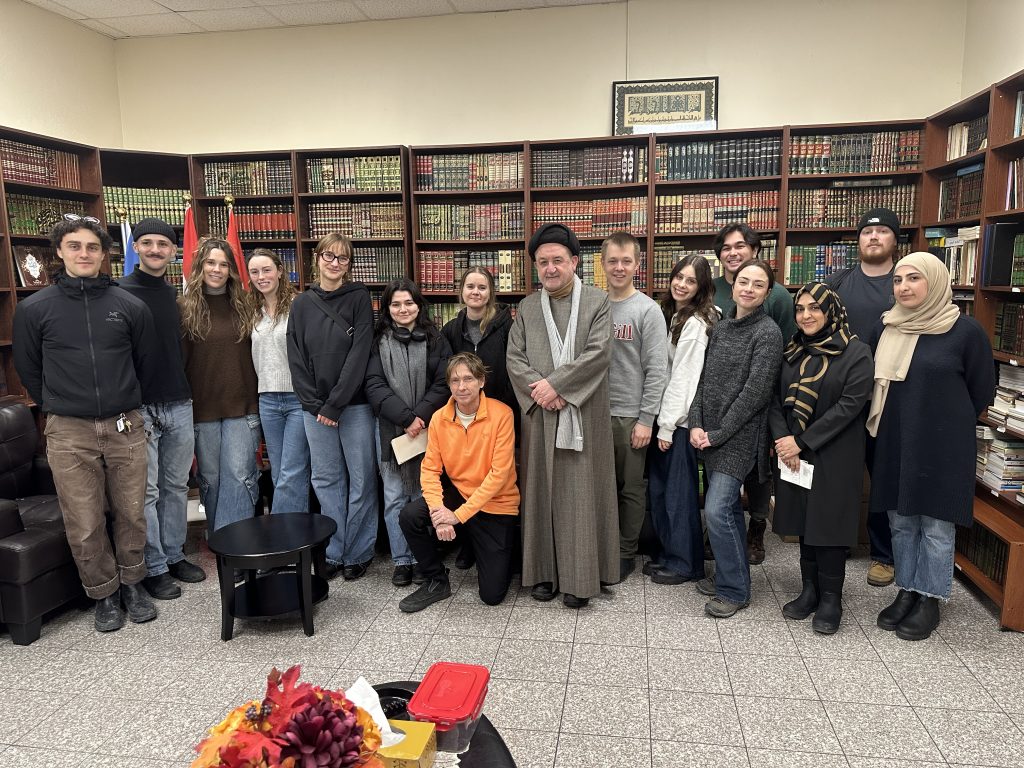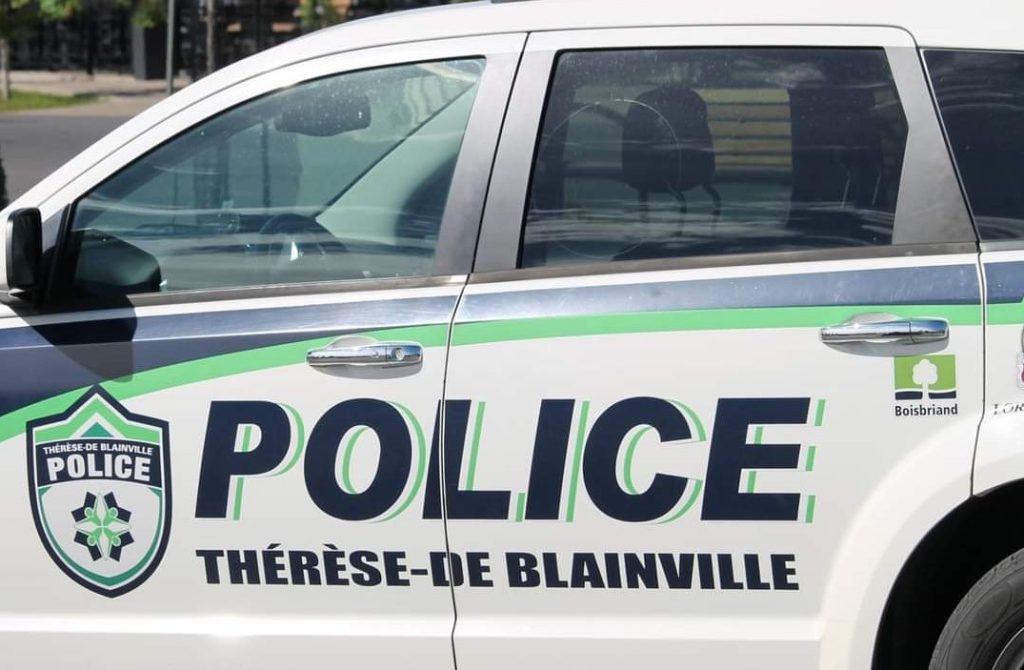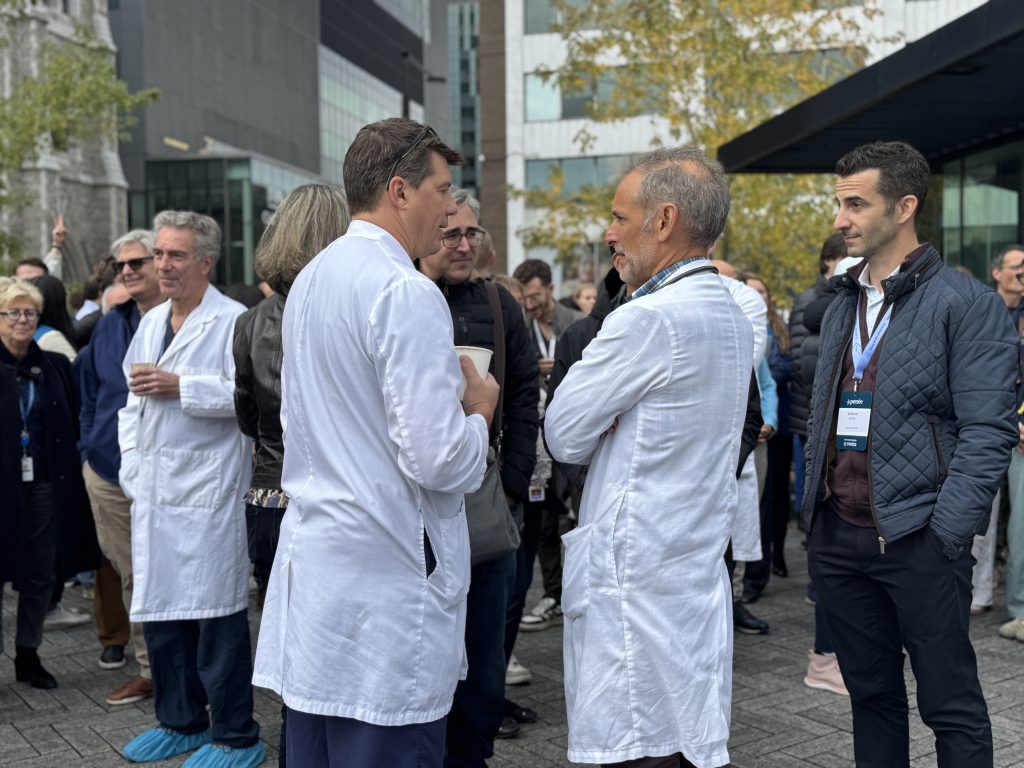Montreal mosque tour gives students insight into Islamic culture amid Muslim Awareness Week

Posted January 28, 2025 7:41 pm.
Last Updated January 28, 2025 9:38 pm.
Getting to know each other: that’s the goal of Muslim Awareness Week.
It comes as the province marks eight years since the deadly Quebec City mosque attack in 2017, when six Muslim men were killed and many more worshippers were injured as a gunman opened fire during evening prayers.
“On the 30th of January, we felt a massive wave of solidarity towards the Muslim community, and unfortunately, that didn’t last very long. So, Muslim Awareness Week is an initiative that is in its seventh edition this year,” explained said Jawad Kanani, the administrator and board member of Muslim Awareness Week.
“It allows people from different ages, backgrounds, ethnicities, colors, and beliefs to come together and build a bridge with the Muslim community. It also allows us to showcase what our accomplishments, aspirations, and contributions to this society are.”
On Tuesday, a mosque tour was organized at Montreal’s Lebanese Islamic Center as part of Muslim Awareness Week, giving architecture students in Montreal an opportunity to learn about Islamic architecture and its importance.

“As a board member, I’m extremely proud to see that Muslim Awareness Week has partnered with McGill architecture students in order to have the Lebanese Islamic Center visited this afternoon. I think it’s very important for future architects and architects to come and visit our places of worship and these places that are very central in our day-to-day life so that they can understand the needs of Muslims living in Quebec,” said Kanani.
This visit is an educational approach for architecture students at McGill University, who will soon have to design a mosque in school.
“I think it’s been really important these past few weeks just to go around and actually get to experience the culture a little bit for ourselves as much as we can,” explained Nikki Apostolidis, an architecture student at McGill University.

“I think it’s extremely important. I think we’ve been really kind of learning about the culture and seeing how many people actually practice in the city. And seeing how many mosques there actually are has been really kind of eye-opening, just because they’re so hidden sometimes. So, I think it’s really important to learn just about our people and everybody that actually lives in Montreal. It’s not just kind of our small community, it’s actually much bigger,” she added.
“What I took away from today, at least, is that this cultural center seems to be one of the larger ones we’ve seen, or at least the most active with as many people. It seems like people genuinely enjoy the spaces they have. And I think one of the most important things is that they’re kind of open to having everybody experience their culture.
“Like, we’ve never been shunned away or been told we can’t be here or can’t do anything. So, I think at least to me, it’s been very eye-opening to just, like, they have embraced us and we’ve embraced them, and it’s kind of been nice to just learn about it and not have any ideas coming into it or preconceptions.”

Oscar Lallier, an architecture student at McGill University says, “I feel like we still need to bridge different cultures together all around the world. And our part as architects is to design spaces, but spaces for everybody as well. And so some of these spaces are, I feel like, under-designed or under-valued.”

Lucas Azar, an architecture student at McGill University adds, “It was important for us to be curious and also to actually get to know the needs and traditions in a way of something we really do not know and we’re not accustomed to doing some religious buildings in architecture school usually. So it was a unique experience to be able to kind of learn through architecture what also the Muslim community is about in Montreal.”

“I’m coming at it from an architecture student kind of point of view, but getting to know how every custom or every faith has their own architectural tradition. It’s not something that you can, I feel, really—let’s say—avoid. You have to go and talk to these people and kind of learn how the buildings function, how their needs are maybe different from other communities. So, being able to be here and talk to the people that use this center every week, I think it’s invaluable to know how to design our own building afterward,” added Azar.

“Muslims in Quebec and around the world, wherever they settle, are very much active and present members of society. And they need infrastructure that actually meets their religious and cultural needs. It’s very important to highlight that Islam and culture go hand in hand,” said Kanani.
We can see these cultural variances when you visit one center after another. I think this experience will allow future architects to actually be able to meet the needs of Muslims in the upcoming years when they come to design such buildings for us.”

“Well, I think we have all positive things. And I wish they will have, like, you know, and the real Muslims, they are good people, peaceful people, people who love others, people who are really human. For them, everyone is a brother and sister. We don’t say ‘us’ and that’s it. No, it’s ‘us’ and the others,” said Ali Shibli, who helps manage Montreal’s Lebanese Islamic Center.
Kanani spoke about how Muslim Awareness Week helps foster understanding around different communities.

“I think one of the key points here is that I believe ignorance is what actually breeds fear. And fear is what took over the person who committed the act on the 29th of January. So, I believe that when we come together and understand each other, we become much more tolerant towards one another,” he said.
“On the other hand, I actually encourage and urge Islamic leaders and those responsible for mosques to open up their doors and invite people, like their neighbors or the non-Muslim population, to come and see the beauty within these four walls. I think by opening up our doors and having doors of dialogue and understanding, we can clearly become a much more structured, powerful, tolerant, and also a very inclusive society.”

Kanani also speaks about the importance of having these important conversations.
“I think these conversations are long overdue but more and more, barriers have been created between certain minorities, not necessarily just with Muslims. And it’s very important not to let this trend go on for too long.”

Muslim Awareness Week runs until Jan. 31.
“Getting to know each other, I can maybe shed some light on the activities that Muslim Awareness Week is organizing throughout the week. We have many, many partners, so we have a wide range of activities that can meet all kinds of people from all walks of life, be it from a food experience to a blood donation to a piece of art. So, there are many ways for us to get together,” explained Kanani.
“The amazing part is, no matter which of these activities you partake in, the conclusion is that a Quebecer or a Muslim Quebecer, at the end of the day, has the same struggles living here.”
For more information, visit their website.








